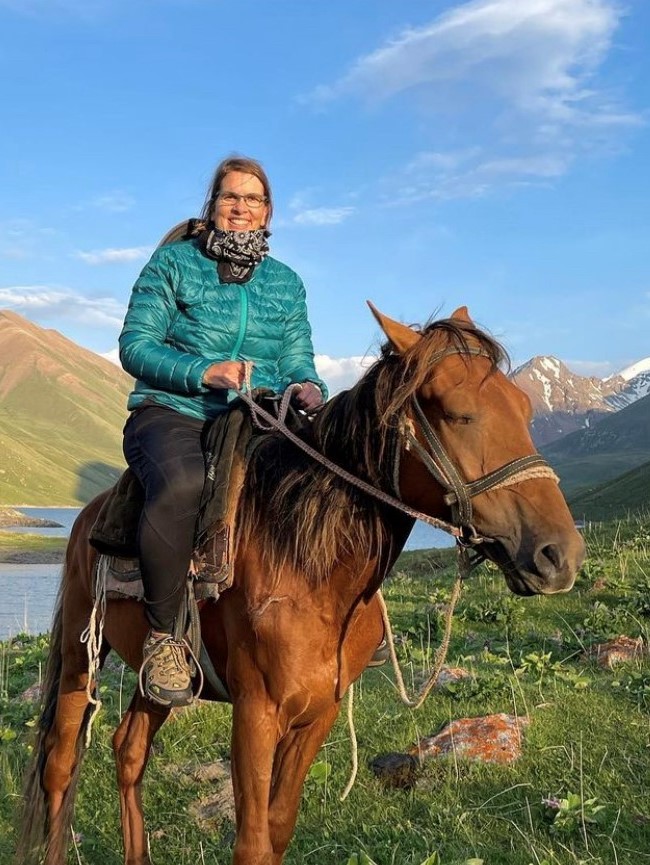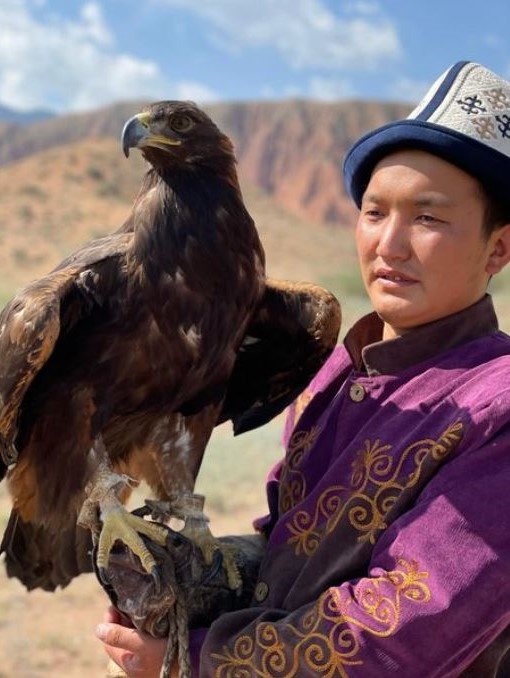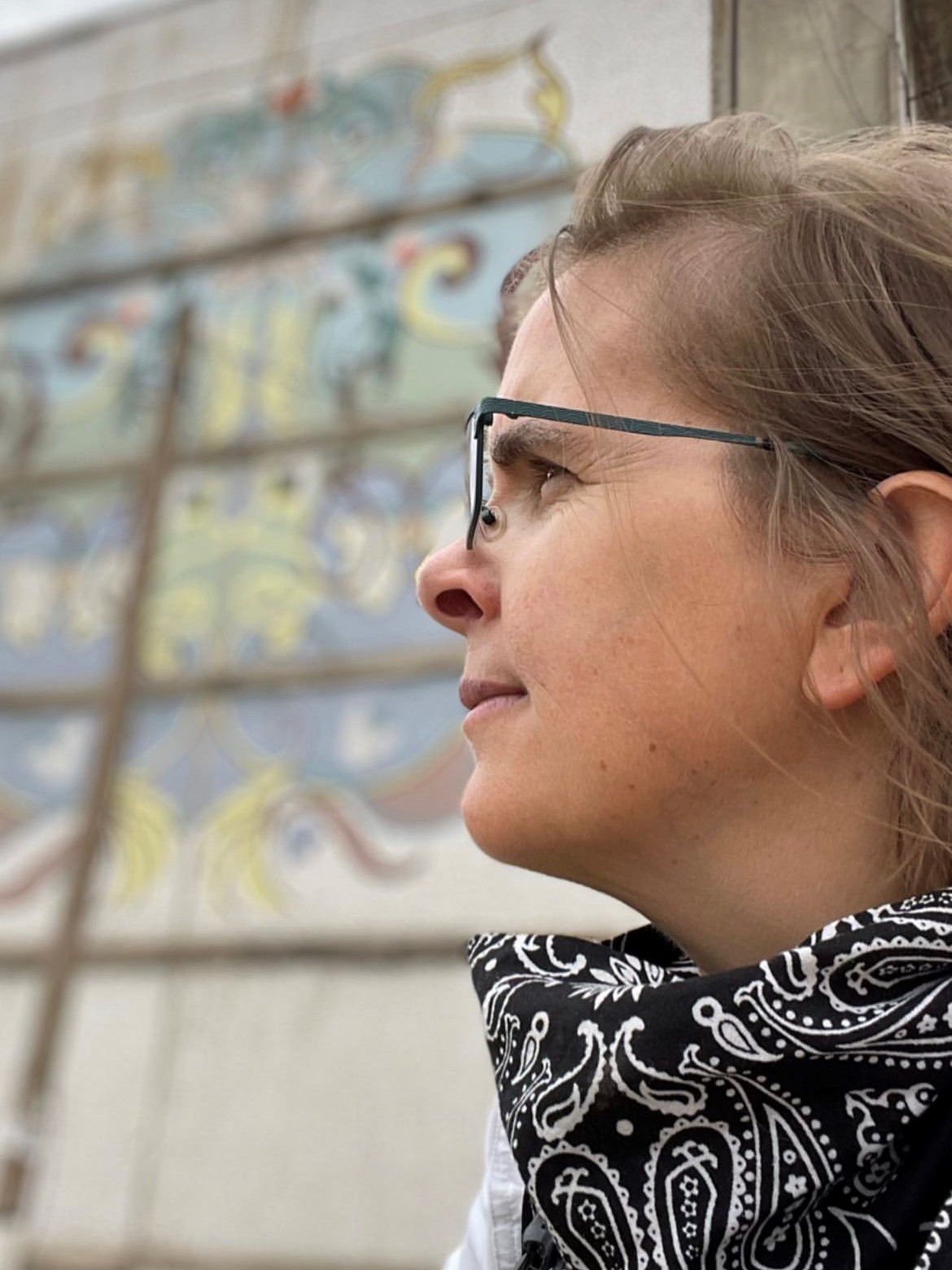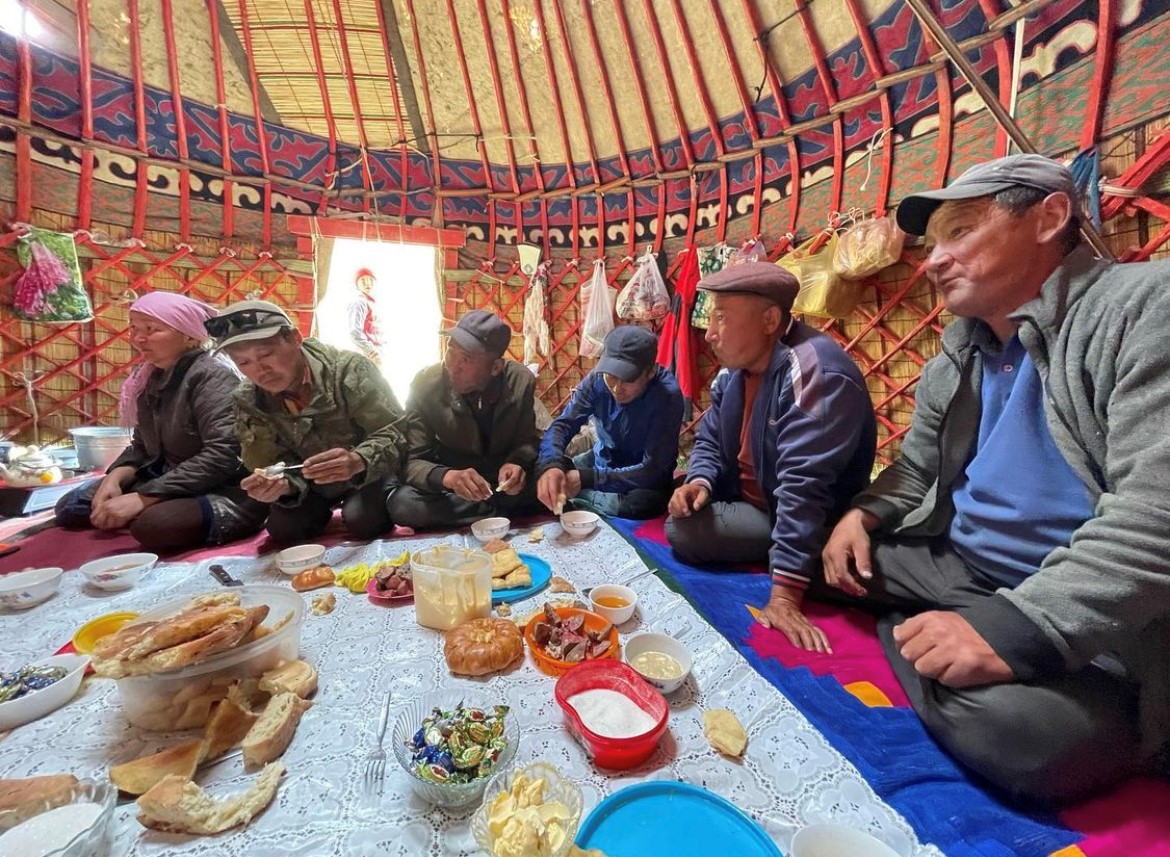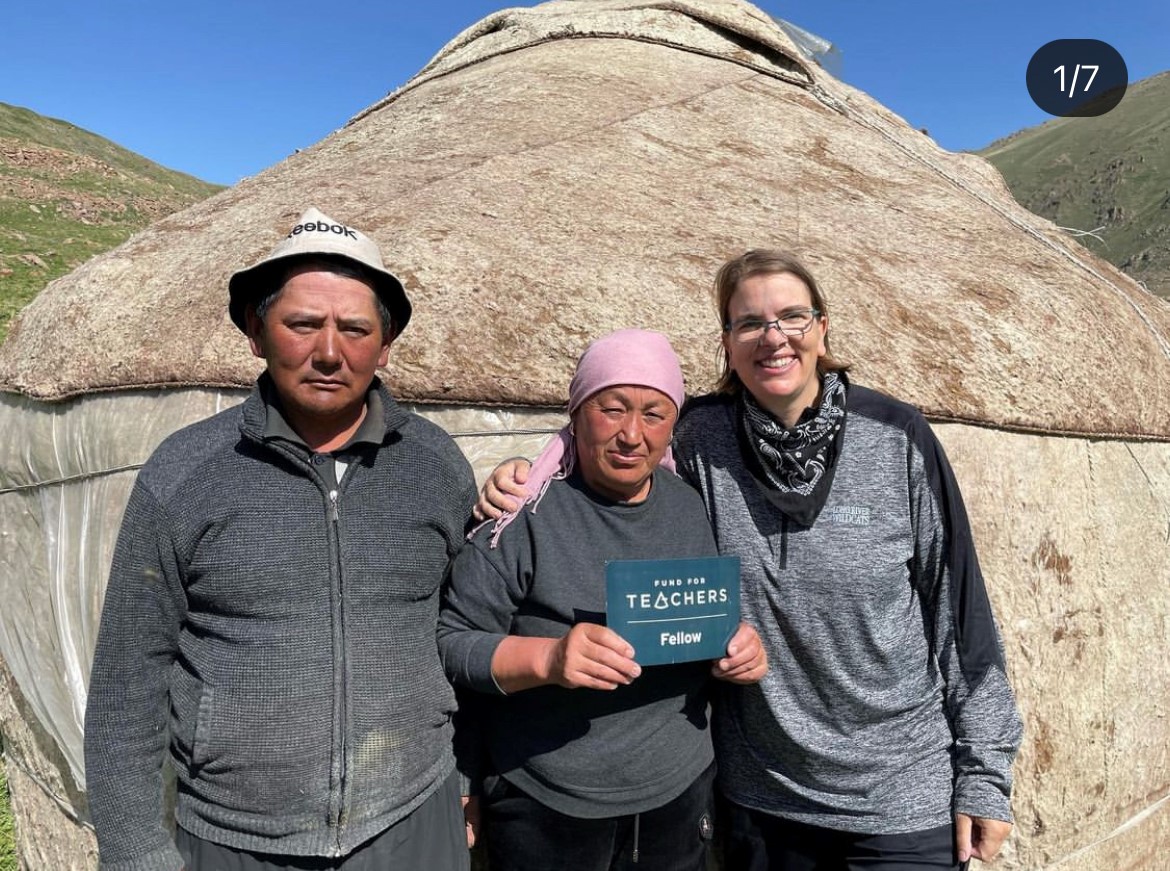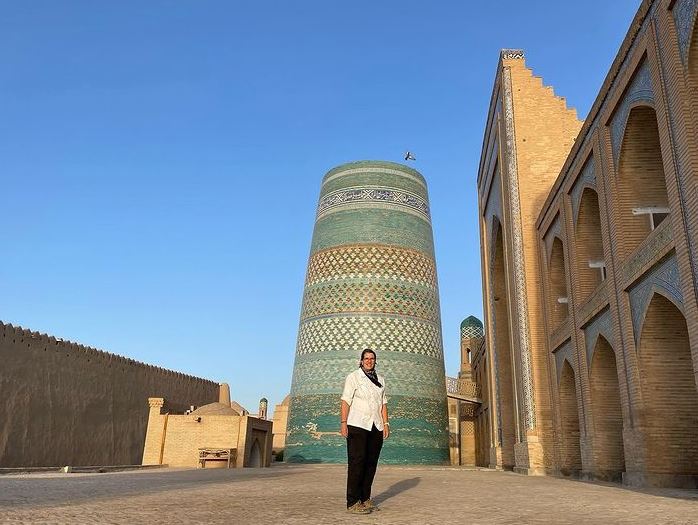Fellow Friday | Geography
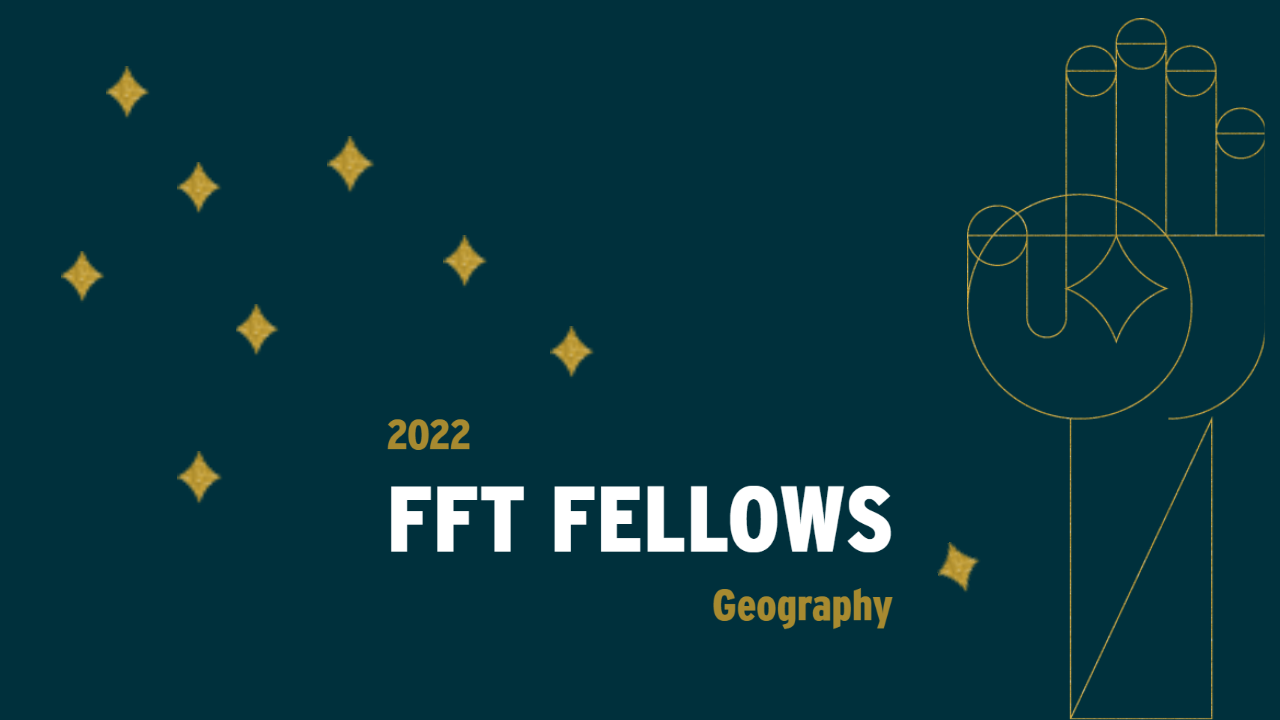
This summer we’re closing out each week with a look at what some of our grant recipients are tackling with their fellowships. Topics so far have included: Music Education, American History, Indigenous Studies, English Language Learners, Gender Studies, Astronomy, Holocaust Studies, Global Citizenship, Health & Well-Being, Math Education, World Cultures, and even Anthophilia (the study of bees).
Click here for a complete list of grant recipients
Today, we elevate the experiential learning of one of our most intrepid Fellows, Marina Outwater (Long River Middle School – Prospect, CT). When her original fellowship was derailed due to civil war in Ethiopia, she pivoted to pursue her intended topic – the Six Essential Elements of Geography – but in Central Asia, specifically Uzbekistan. Marina’s time there has not been without civil unrest, but we caught up with her on the eve of Eid al-Adha (the second holiest holiday of Islam) to hear about her experiences in this ancient land with a population that is 90% Muslim and that encompasses routes of the historic Silk Road.
[minti_divider style=”3″ icon=”” margin=”20px 0px 20px 0px”]
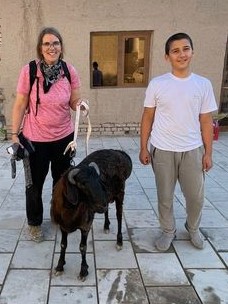 Q: Following you on Instagram, one is easily awed by the landscape and also by the unique nature of your fellowship. You’ve helped herd cattle to a summer pasture in the mountains of Kyrgyzstan, watched a father instruct his three-year-old son in the tradition of eagle hunting and explored abandoned Soviet-era buildings in Tashkent. How would you describe these experiences?
Q: Following you on Instagram, one is easily awed by the landscape and also by the unique nature of your fellowship. You’ve helped herd cattle to a summer pasture in the mountains of Kyrgyzstan, watched a father instruct his three-year-old son in the tradition of eagle hunting and explored abandoned Soviet-era buildings in Tashkent. How would you describe these experiences?
A: Beautiful. The people here are the most hard-working, hospitable and welcoming hosts. When I arrived at the yurts of the nomads who agreed to let me join them, there was a feast waiting for me. When my driver (who also owned the home where I stayed in one town) dropped me off to go to the animal market for a sheep, I asked if I could join and he said, “Sure!” The landscapes are breathtaking and the history is so rich with things I knew little about before coming here.
 Q: Fund for Teachers stresses that our grants are not “travel” grants, but opportunities for teachers to pursue what they believe they need to be effective in the classroom — which could mean a workshop across town. How did you decide to craft this particular experience?
Q: Fund for Teachers stresses that our grants are not “travel” grants, but opportunities for teachers to pursue what they believe they need to be effective in the classroom — which could mean a workshop across town. How did you decide to craft this particular experience?
A: I moved from teaching sixth grade to seventh grade last year and my colleague and I were supposed to teach the Six Essential Elements of Geography. The learning was so dry that we didn’t even try. Initially, I designed this fellowship to explore the Six Elements in Ethiopia because my students had little knowledge of sub-Saharan Africa and I wanted to add context to the content. But due to the civil war there, I pivoted to another area that we didn’t know much about. Then, I found a contact who could coordinate authentic experiences for me. For example, when I asked if she knew how I could work alongside temporarily nomadic herders, she said, “Let me call someone.” Tomorrow, I’m going to bake bread with some local women. I’m going to the market to find fabric and then learn to sew a traditional dress with other women. I wasn’t interested in tourist experiences. I wanted to know what it is really like so I can tell and show my students.
Q: You have two children back home who know their mom is crossing deserts and exploring Soviet-era spaces. Are they concerned? Are you?
A: Not at all. I haven’t been afraid once. Like I said, the people and the places are wonderful. I would unreservedly encourage anyone to come here. There have, however, been a few instances that were surprising. For instance, a guide was showing me Uzbekistan’s White House, the official presidential office in Bishkek. The weather is extremely hot and dry, so we were talking beneath a tree where this young man sat. He didn’t move the entire time. Afterwards, my guide said, “That person was part of the secret police.” My 14-year-old son didn’t believe me! Another time, I had to cancel plans to visit a Russian ship graveyard near the Aral Sea because of political unrest. But this gave me the opportunity to ask people about the protests and hear their perspectives.
Q: What do you want your students to get out of your experiences?
A: First I want students to realize that they don’t have to have a lot to be happy. These people are so gracious and kind and live incredibly full and productive lives. I also want them to see commonalities between these people and themselves. And lastly, I want them to see the importance of history and how it shapes today. The Silk Road was operational before the Common Era and facilitated the growth of our modern world. And in a more current example, I sat next to a young man on a plane who talked about how he would love to come to America, then quickly added, “But let me ask you a question. Why do young people not live with their families?” I explained that I believe it goes back to our country being founded on independence and, for us, children going out into the world is a reflection of that. He replied, “Are you telling me that your lifestyle is based on something that happened in 1776?” and I said, “Yes, I am.”
Q: Last question. What would you say to a teacher who is considering applying for a Fund for Teachers grant, but sees you in Uzbekistan and says, “I could never do that”?
A: You don’t have to! Fund for Teachers is all about empowering you to do what YOU need to do. Also, I’ve received two previous grants from organizations that required previous participation and/or training to be awarded. Fund for Teachers just wants you to be passionate about an idea and then they walk you through the application process. There are so many resources to guide you. You don’t have to do something this adventurous. But you do have to do something that benefits your students — that’s at the core of any successful proposal and meaningful fellowship. It all starts with the students.
Follow Marina’s experiences through the Instagram feed she is updating regularly.
[minti_divider style=”3″ icon=”” margin=”20px 0px 20px 0px”]
“Now more than ever, it is imperative that we invest in the most important component of any classroom — the teacher,” said Karen Eckhoff, Executive Director of FFT. “Educators are facing countless challenges every day, and Fund for Teachers is dedicated to further diversifying the ways that we can support them. Our grants represent trust in teachers’ professionalism, creativity, and vision, offering flexibility to meet the unique needs of each classroom, with the students remaining the ultimate beneficiaries as they continue to grow and learn in today’s ever-changing world.”
We look forward to introducing you to more 2022 FFT Fellows next Friday!
 Back to Blogs
Back to Blogs